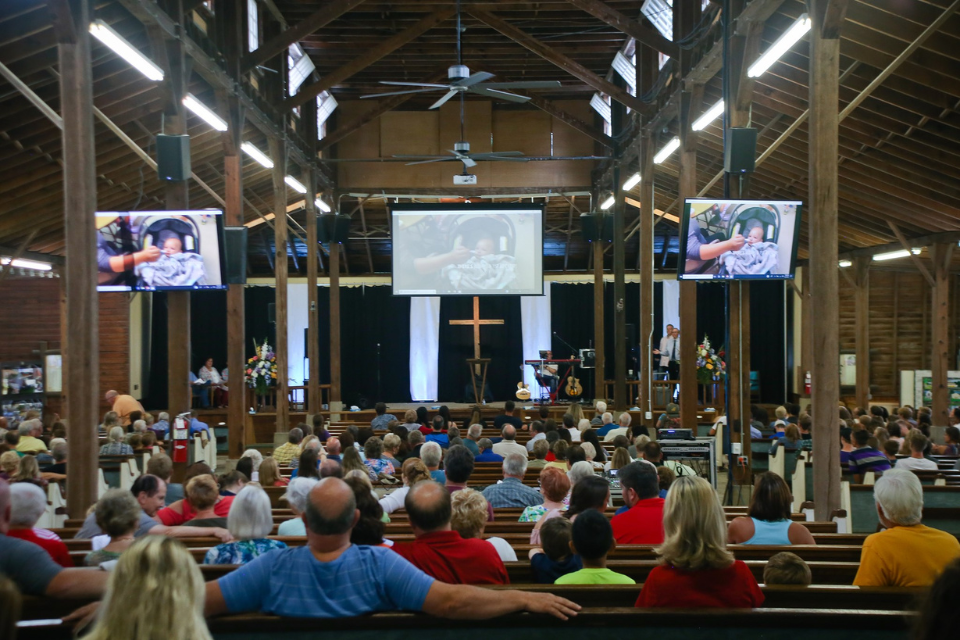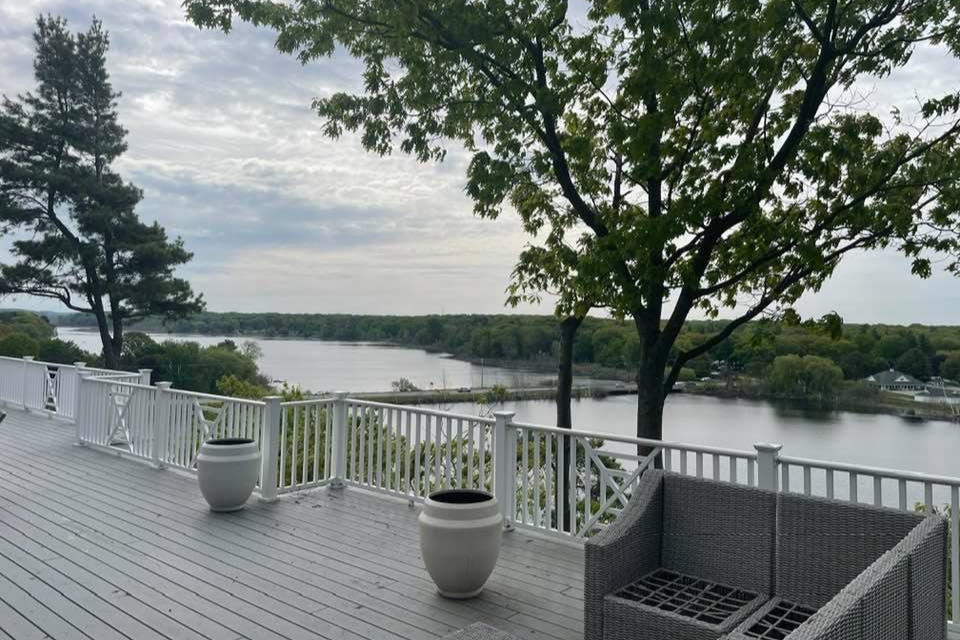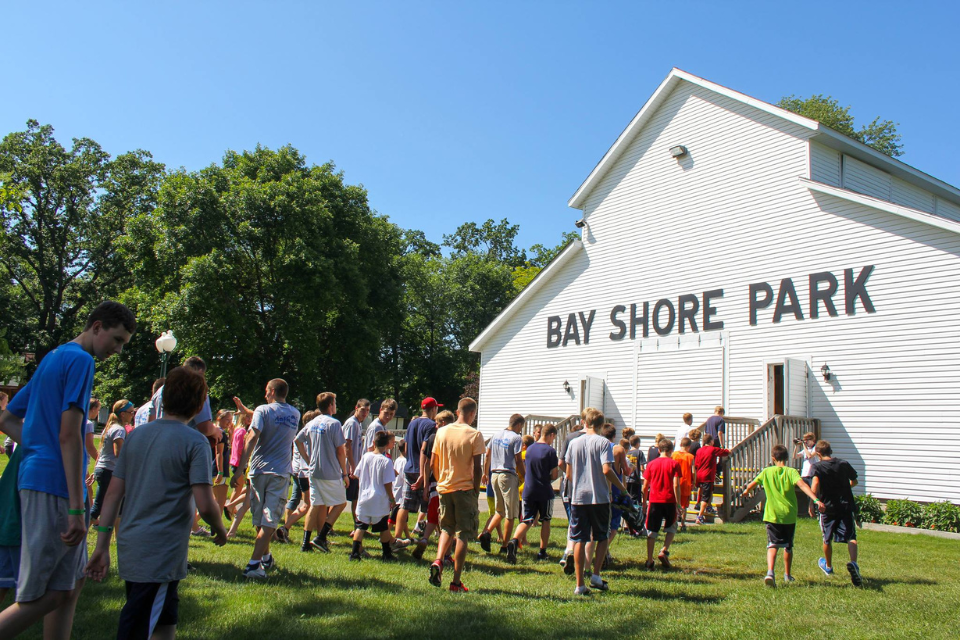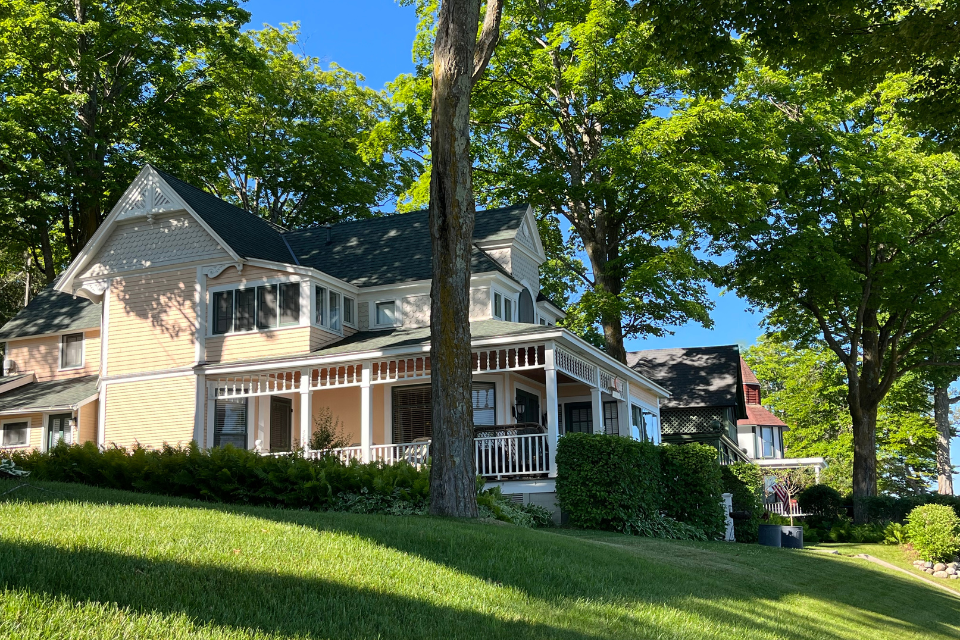Founded by Methodists in the post-Civil War era, summer communities and camp meetings here in Michigan continue to provide respite and relaxation during turbulent times.
JACK HARNISH
Michigan Conference Communications
The America of the late 1860s was a bewildering time of complex problems—the ravages of the Civil War followed by Reconstruction, severe economic depression, political corruption, and fear for the permanence of American democratic institutions. Historian Kenneth Fennimore says for Michigan Methodists, it seemed like a good time to “seek some water and a grove where they might get away from the stress of the day” (The Heritage of Bay View, p. 9).
So the vision of such a place was born in 1875. They modeled their community on Methodist facilities like Ocean Grove, NJ, and planted the first campsites on the shores of Little Traverse Bay outside Petoskey. The Flint and Pere Marquette Railroad obliged with a rail line from Ludington, so Methodists could make the journey up the coast to get away from the heat of the summer and find a place to renew their souls and spread their gospel. The called it Bay View.
Bay View was just one of many similar sites which flourished during that period due to the revivals, camp meetings, lyceums, and Chautauqua programs of the era. About the same time, Epworth Heights was developed in Ludington and Methodist camp meetings in Eaton Rapids, Romeo, and Sebewaing grew up around the evangelistic mission of the church.

For example, Simpson Park in Romeo, MI, began in 1865. After James Starkweather was converted, he sold land to the Romeo Methodist Episcopal Church for the camp. He was part of the abolitionist movement, and from the very beginning the camp meetings were open to all persons regardless of race. “In those first years,” says Rev. Michael Sawicki, “the record shows they had to provide for over 2,000 horses! That tells you about the crowds of people who came.” Sawicki is the President of the Simpson Park Camp Meeting Association and the pastor at Aldersgate UMC in Midland. He says, “For 158 years, Simpson Park Camp Meeting has continued to provide spiritual renewal, worship, and fellowship. It’s a ‘pop-up community’ which gathers for 10 days every year and truly becomes a family.”
Over the past centuries, these summer communities and camp meetings have continued to evolve in response to the needs of the time, but the basic mission to provide a place for relaxation and spiritual renewal remains the same. Bay View grew to be a picturesque community of 400 Victorian cottages set along the hillside overlooking the bay. For many years a relationship with Albion College built a program of music and the arts which continues today. Open to the public, the Bay View Music Festival draws music lovers from around the area to their Sunday night Vesper Concerts as well as an annual Broadway musical and a Classical opera.

Since 1894, Epworth Heights has been a quiet getaway for “Epworthians,” families which have been coming to the site on the shores of Lake Michigan for generations. Camp meetings like Simpson Park and Bay Shore still attract campers and worshipers of all ages to a time of worship, Bible study, and recreation. Bay Shore has expanded their program into a year-round ministry with programs for all ages, but like the other camp meetings, its mission is still centered on creating a place where persons can come to know Jesus Christ and grow together through recreation, worship, and fellowship.

Like all church-related institutions, the camp meetings and summer communities have seen changes in their relationship with the United Methodist Church as they have become more independent and more ecumenical, but the underlying values which were planted by the founders continue to guide them. Born in the aftermath of the Civil War and Reconstruction, when the nation was ravaged with harsh divisions and turmoil, these summer communities provided a respite and a space for relaxation. Today, in a time of national upheaval, they still provide “water and a grove” for the same purpose.
In reviewing Simpson Park, a state inspector told Rev. Sawicki, “You haven’t forgotten who you are.” Through generations of change, these Michigan Methodist summer communities still remember who they are.
Last Updated on September 20, 2022

